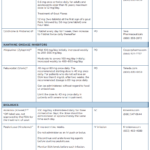Although gout is one of the most effectively treated of all rheumatic diseases, it is among the worst-managed diseases long term, as shown by many studies. “Treatments are excellent, yet are dramatically under-utilized,” says Theodore Fields, MD, FACP, rheumatologist, Hospital for Special Surgery (HSS), New York. “This is because some gout patients feel better between attacks and stop taking their medication, or they ignore or never fully assimilate the need for lifelong therapy.”
Further, they focus on alternative therapies, such as diet, as a way to relieve symptoms. “Diet alone is rarely sufficient [for patients] to reach remission,” Dr. Fields says. “Patients may feel guilty about not adhering to dietary guidelines and, therefore, avoid discussing self-induced flares with their physicians.”
“Concerns about the side effects of gout medications may also play a role in patients not sticking to medication regimens,” Dr. Fields continues. “When a patient starts taking a urate-lowering therapy (ULT), they may get mobilization flares, conclude the medication is not working and stop taking it—which is the wrong thing to do. Or because gout has been shown to have multiple co-morbidities, such as hypertension, kidney disease and diabetes mellitus, patients may decide they are taking too many pills and stop the gout-related medications.”
Working Together to Reduce Gout Flares
Suffering, loss of quality of life and loss of work time have been well documented as substantial for gout patients. There are more than 8.3 million gout patients; the great majority are presently followed by primary care physicians.1,2 Although rheumatologists don’t see all gout patients, Dr. Fields says they can play a major role in managing the most difficult gout patients and in educating primary care physicians about optimal gout management.
“Rheumatologists can help gout patients by developing effective and ongoing strategies for patient education and monitoring so they truly understand why they are being asked to take on the burdens of urate monitoring, diet and lifestyle modification, and lifelong therapy,” Dr. Fields says. “Patients need ongoing reminders about why they need to stay on their ULT and follow up on their urate level to allow for appropriate dose titration.
“Every gout patient should know their uric acid level goal just as a diabetic knows their HbA1c goal or a hypertensive patient has a blood pressure goal,” he says. Rheumatologists should educate their primary care colleagues about the importance of closely monitoring gout patients, and referring them to a rheumatologist when a patient is having difficulty reaching a urate goal or managing refractory flares.
A Need for Education
Because successful gout management requires a complex regimen of medications and self-management involving medication adherence and dietary guidelines, it is essential that patients have a good understanding of how and why medications are used, and how diet affects attacks.


